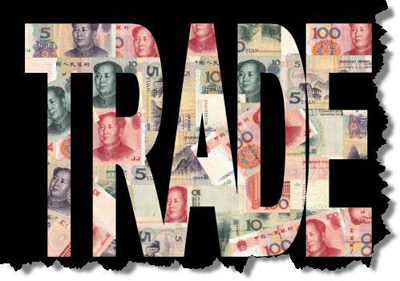Economic relations between Pakistan and China
Source : Business Recorder Date : May 28, 2013
 |
Economic relations ranked low in the co-operative activities despite the enormous potential for growth in this sphere. Pakistan and China both felt the need to enhance economic co-operation in order to muscle their strategic partnership in a fast changing regional and global environment, and since 1999 the two countries have shown the resolve and determination to catch up and make up for the lost opportunities in the economic sphere.
The two sides have undertaken several mega infrastructural projects in Pakistan such as Gwadar Deep Sea Port, Coastal-Highway linking Karachi with Gwadar, upgrading of the Karakoram Highway, Chashma nuclear power plants, and a number of other hydro-power projects.
China is Pakistan's largest trade partner and Pakistan is China's second largest trade partner in South Asia, India being the first. However, there is trade imbalance, which needs to be removed to make the trade flow harmonious. Hence, Islamabad needs to chalk out policies which can promote Pakistani exports to China so that local business community can benefit from the huge Chinese market. Another aspect of Pak- China economic and trade relation is that the economic exchange is mainly at governmental level. The non-government commerce has been far below its potential. This is also detrimental to further development of bilateral economic co-operation.
The security situation in Pakistan affects the investment environment in Pakistan. This stands in the way of Chinese investment and bars the private sector in particular, especially in power and telecommunication sectors. The security situation is one of the main concerns of China and requires improvement.
In addition to trade, there are many new avenues that can be explored for economic and investment co-operation between the two countries. As identified by policy experts, the development of mega projects ie, Gwadar Sea Port and Kashgar Special Economic Zone (KSEZ) have immense potential for enhancing economic and trade co-operation between the two states. Some of the geo-economic imperatives of these two projects are discussed below:
Kashgar Special Economic Zone (KSEZ): It is ideally located to become a hub for trade, logistics and tourism between Pakistan and China. The development of Kashgar city was not only a positive sign for China but also for Pakistan as KSEZ provides good opportunities to Pakistani business community. The creation of KSEZ would make the city the Shenzhen of the West, providing great opportunities for the businessmen of both the countries. The success of KSEZ depends on Pakistan's stability, development and assistance. Direct air link between Kashgar and Islamabad would not only further improve bilateral relation between China and Pakistan but also economic activity would be generated.
Gwadar Sea Port: China needs Pakistan to facilitate its physical connectivity with the West and South Asia as well as the Indian Ocean rim. It needs Pakistan to further enhance the safety and security of China's sea borne transportation of strategic resources, particularly uninterrupted supply of oil. The development of Gwadar port facilitates China as well as holds the potential to greatly increase economic activity inside Pakistan. Since it was built by the efforts of China, the recent handing over of operational control of the Gwadar Port to Chinese Overseas Port Holdings Ltd is a right step in this direction.
Investment in energy sector is another area of future co-operation. Pakistan is currently passing through an energy crisis and would like to explore Chinese investment and co-operation in alternative energy (wind and solar) besides, nuclear energy as well as energy through coal.
Thar Coal Project: Pakistan has abundant coal in Balochistan and Sindh. Studies confirm that the huge coal reserves in Thar coalfield are estimated to be 175 billion tonnes, 94 percent of the total coal reserves in the country. Thar Coal Project which has the potential to change the energy landscape of Pakistan continues to move slowly. For Thar Coal to really start and change the country's destiny, the Government of Pakistan needs to figure out how it is going to finance it. It would be a great tragedy if despite availability of huge coal resources in the country new power plants are based on imported coal. Since Chinese companies have shown interest in Thar Coal Project, Pakistan should make efforts to convince China to invest in this project.
